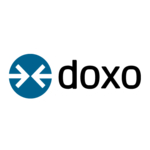Interview: Martin Grunewald, BankservAfrica – the African payments dream
In an exclusive interview with Daily News at Sibos, Martin Grunewald, chief payments officer at BankservAfrica, discusses its vision for a modern payments system in Africa and why replication is a good thing.
“If we don’t start, we won’t get to the finish line”.
There is a lot of planning and talking now, but South Africa-based BankservAfrica believes it has the right experience and expertise to push for a modern payments infrastructure on the continent. Things are happening but they take time.
As Africa’s largest automated clearing house, and with 44 years of existence, the organisation is in a good place to help. Not only is it a clearing house within its home country, it is also one for the Southern African Development Community (SADC) – an inter-governmental organisation comprised of 16 states that seeks political and security co-operation.
Grunewald has been at BankservAfrica for six years and recognises that around the world organisations are looking at their payments infrastructure.
With its approach, it “created reasons and the need to change”. Its nine-month research was split into three components.
For the first one, he says: “We took developed and developing countries: Brazil, US, Canada, Mexico, UK, EU, India, Australia and Nigeria. This took up a big chunk of the work.
“For the second component, we interviewed all stakeholders in South Africa to understand where they see the country going. And for the third, we combined what we heard in South Africa for a possible way forward.”
Where it is now with this plan is relatively clear as Grunewald says the stakeholders are “debating and getting consensus”.
“We have determined the goals, drivers and what we do. Then we can start building business cases.”
Its process of design started this month and is scheduled to finish in six months. When that is reached, BankservAfrica “can start looking at the technologies and spend time with the design phase”.
The big track
Throughout the interview, Grunewald was very open and lucid about BankservAfrica’s vision.
“If we design and build a modern payments system in Africa, it’s really about building one big track. Everything else – such as open APIs – will fall off that.
“If we go down that route, there are no reasons why we can’t replicate it over the region. We will start with SADC.”
But Grunewald is aware of the challenges involved – such as BankservAfrica will need to tie all the regions together.
“In Africa, it’s very diverse, with different languages and currencies. But we are trying to build something properly in South Africa and SADC.”
In his view, there is momentum in SADC – such as for high value payments. And because it is made up of 16 states, what it does will be recognised by other economies on the continent as they “need that backbone to start progressing”.
Peace and goodwill
A lot of conversations about Africa will turn to the question of developing countries and how they can be helped more. In South Africa, as an example, Grunewald believes it has “two economies”.
“The modern one is verging on a first world style economy but a big chunk is left behind. A payments system for the future needs to cater for both economies to prevent conflict in future that one economy has to pay for the other.”
In terms of specifics, he offers up East Africa as an example: “Mobile has done very well but it’s gone as far it can go – with closed loop and P2P stuff. The next phase is evolution – and where there is interoperability between traditional systems and mobile – this will get the economies of the small operator, entrepreneur or shop on corner going.”
When asked about corruption in Africa and whether this will impede its plans for a payments infrastructure, again, Grunewald doesn’t dodge the issue.
“If we have the support of the central banks across the region it will work to mitigate corruption. If the system is solid and there are no work arounds – and cash is not so easy to work with – then the payments streams will help countries and banks to counter money laundering and fraud.
“A good payments system will not stop everything concerning corruption, but it will start mitigating those risks.”
As a bonus, Grunewald believes it make those environments “more trusted for international countries to invest in”.
Showtime
Because we talked at Sibos, he also explains the benefits of the show.
“Here we have chatted to the World Bank and the Gates Foundation on how we can make things better and co-operate. Otherwise we will have all these little pockets not talking to each other.”
These conversations are not deals as such, and there aren’t any details on them yet, but Grunewald calls them “constructive”. For example, with the Gates Foundation, they are looking at tackling Zambia and Tanzania.
BankservAfrica has interesting plans for Africa, and at least it has started on its ambitions.
Follow us on Twitter @DailyNewsSibos
Read all the latest news and views from Sibos 2017 online here or pick up a free print copy of Daily News at Sibos if you are at the conference!











































